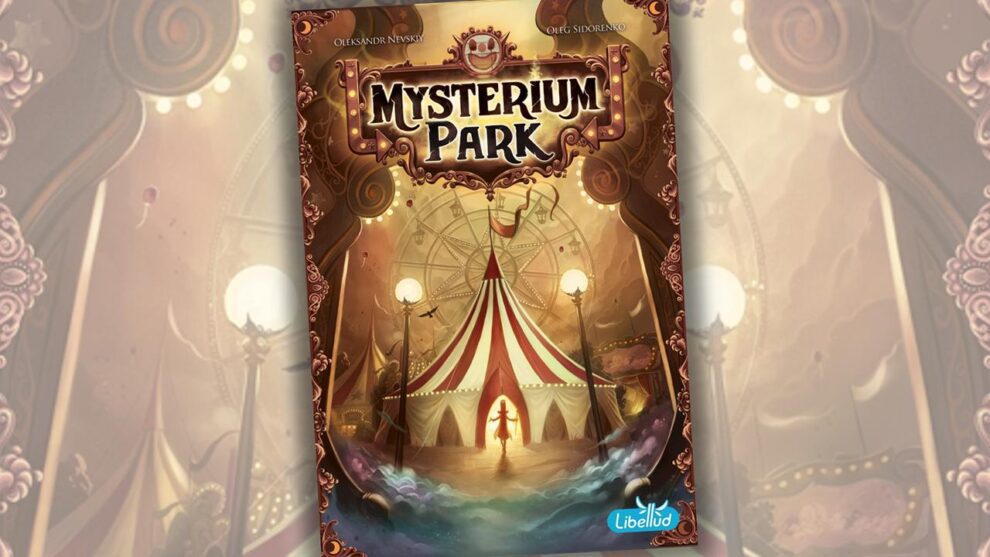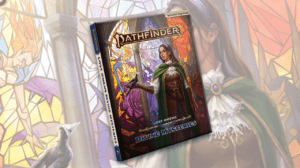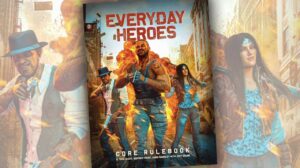Sequels and reboots don’t always pan out, but sometimes they are necessary to right the wrongs of the past and move forward in a positive way. The original Mysterium remains one of my top deduction games, but Mysterium Park has, by and large, replaced it thanks to simplified mechanics and a better ending. Let’s check out my review.

Mysterium Park Overview
In Mysterium Park, players assume the roles of Psychics who are investigating the tragic disappearance of the former director of a mysterious funfair, while one player takes on the guise of the Ghost of the late director. Over the course of three rounds, the Ghost guides the Psychics to identify the innocent bystanders and potential scenes of the crime while whittling these down to determine the culprit. If the Psychics and Ghost are on the same page, the director will finally have peace.
It’s no easy feat, however, as the Ghost can only communicate through the use of Vision cards. These cards are fanciful, filled with abstract imagery and compositions that are reminiscent of a fever dream. They are miraculously expected to give these cards to the Psychics to guide them towards specific cards in the tableau. And, somehow, it works!
This is a cooperative game in the sense that players are encouraged to share their opinions and hypotheses on what the Ghost might be trying to communicate. Due to the arrangements on the cards—and the limited hand size for the Ghost—it is often ambiguous as to what particular card the Ghost is directing a player towards.
Once all the players have their Vision cards, they place their marker on the card they believe corresponds to them. Anybody who ends up being incorrect will try again in the subsequent turn, utilizing player input again to help, along with an additional Vision card or several. The round doesn’t progress until all the Psychics have correctly guessed their associated cards.
The leftover Characters and Locations are used in the third round, serving as the final tableau. In this round, the Ghost is only allowed to provide two Vision cards collectively to the entire group; one is indicative of the Character responsible, and the other is associated with the room where it happened. Hamilton!
Correctly guessing the Character and Location combination means a victory for the Psychics and Ghost!
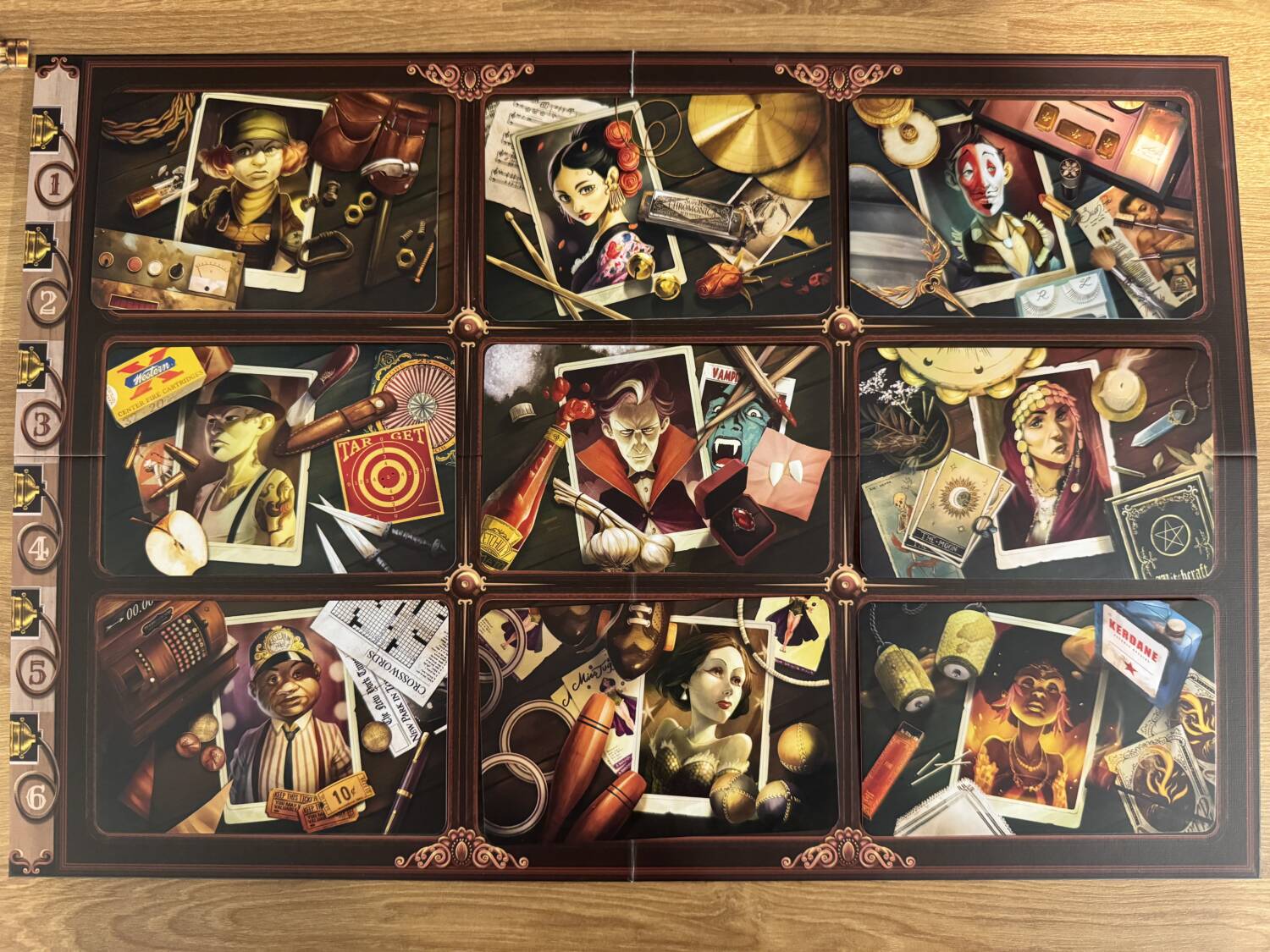
Mysterium Park Upstages the Original
I’ll never forget playing Mysterium at my first attendance at a random board game meetup, where I was thrust into the role of the Ghost with little fanfare. I loved it. Even without being able to talk during the Vision portions of the game, I still found a way to bring the theme by revealing the results of the rounds with a ghostly voice and sound effects.
But there are parts of Mysterium that just end up making the game take a bit too long for my liking. For one, there is an extra stage of the game where the Psychics also have to identify the murder weapon associated with them. It just adds some unnecessary time to the game, but the real travesty is that the game structure is set up so that players that are incorrect are just left behind.
Let’s say that you don’t manage to get your Character correct with the Visions, but everyone else does. They move on towards the Locations while you are stuck back at square one. For a cooperative game, this takes away that collaborative, helpful element of making sure that all the Psychics make progress, because everybody who got their Vision correct is focused more heavily on their next set of cards. Mysterium Park fixes that by removing the third round and not progressing anybody until everybody has made it.
From the Ghost’s perspective, Mysterium Park also greatly refines the experience with a massive quality of life improvement. In the original game, the Ghost is managing everything through card slots on a Gamemaster-style screen. It makes setup annoying and more fiddly than it needs to be. Instead, Mysterium Park directs the Ghost through a single card for each round that denotes which cards in the tableau correspond to which players. I’ve played the original a bunch—oftentimes as the Ghost—and this change alone is enough to make me only want to play Park going forwards.
The last major change that I particularly prefer is that this updated version eliminates the voting phase. In the original, players could vote with limited tokens, indicating whether or not they agreed with a player’s choice. Getting these guesses correct would then help out each Psychic at the end of the game, determining how many Vision cards they would get to see out of the final three. Mysterium Park does away with that completely, speeding up the game while simultaneously eliminating this idea of having a winner within a cooperative game.
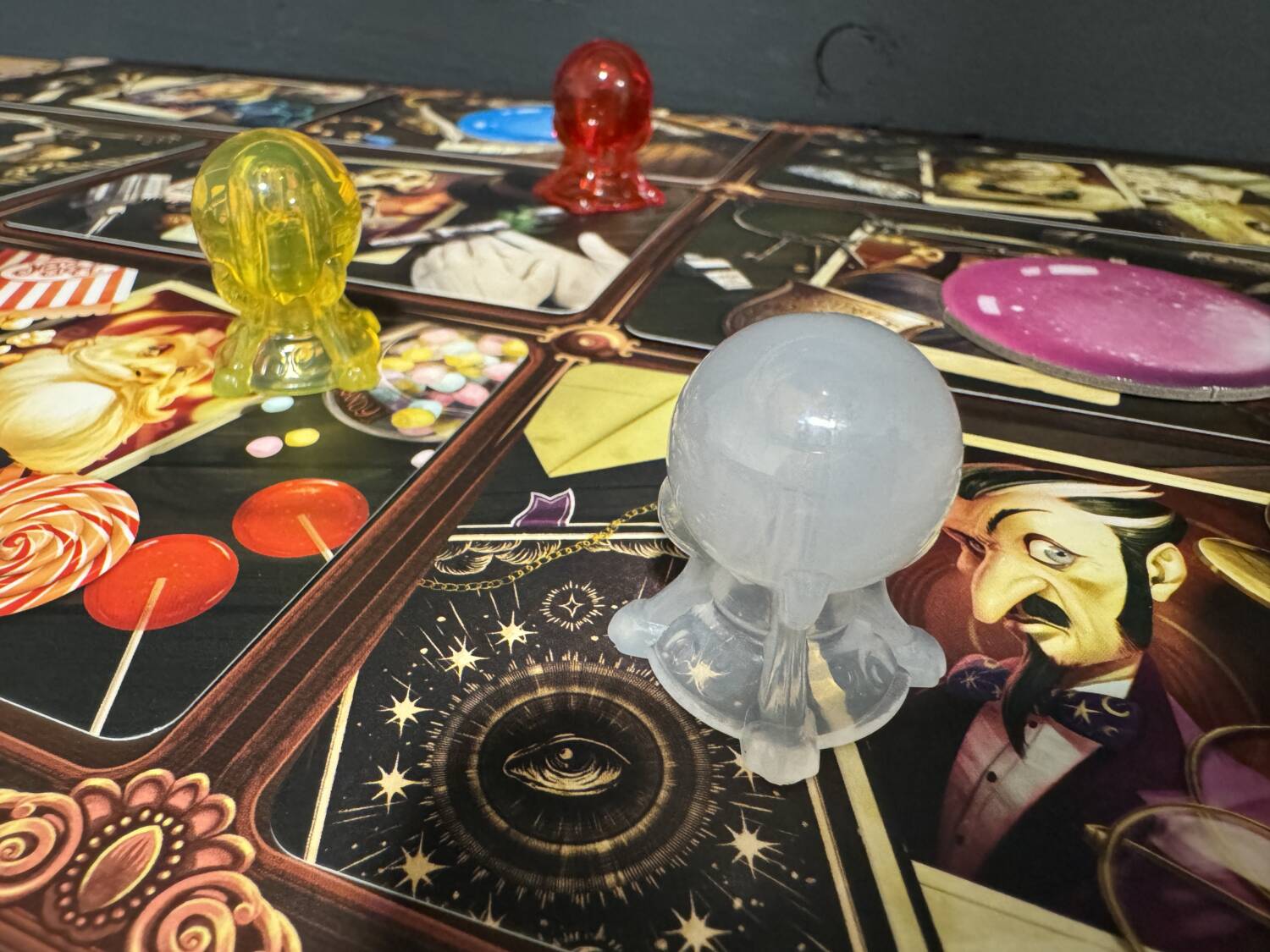
Mysterium Park Deserves an Encore
Now, I will agree with the general consensus that the Vision cards are slightly better in the original version, but I’ve actually ended up combining them all together into a massive deck instead. I’ve also seen people who have combined abstract cards from other games, like Dixit, to bring more variability into the Vision process, with great effect. Make the game your own, mashing cards and rules together to fit the experience your table wants to have.
Whenever I’m introducing newer folks to board gaming, Mysterium Park is one of the top games that I gravitate towards. At the end of the day, the game boils down to guessing which card most closely matches the Vision card being shared by the Ghost. It makes for a simple gateway game that eliminates all the frivolous fluff from the original, standing in the center ring for a standing ovation.


